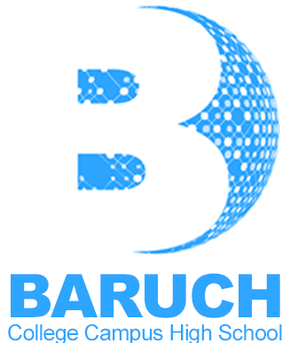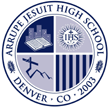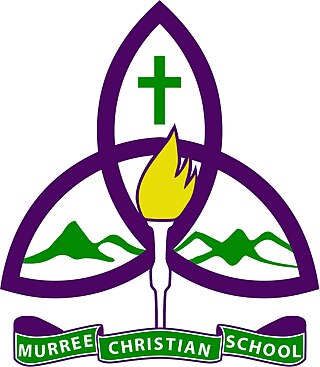Curriculum
The curriculum at MCS is very rigorous, demanding, and sufficiently challenging for students. Until the 6-7s (1st grade), students are not given any homework. Once students reach the 6-7s, homework is given to them weekly on Wednesday. The amount of homework starts to slowly increase while students are in the Lower School. In the 8-9s and 9-10s (3rd and 4th grades), students are assigned to read a certain amount of books every year, and record their weekly reading process in a reading log.
From Pre-K until the 8th grade, there is a theme or central focus in the year's curriculum. For example, the 8-9s, the focus is on Native Americans, and eventually branches out to European Explorers. Students must put on plays inspired by the explorer that they have been assigned to study. In the 9-10s, the primary focus is Migration to the Americas, and students take class trips to Washington Heights and even Ellis Island. The themes and focuses in the classroom become more complex as students enter the Upper School. In the 5th grade, students study Sumerian life, environmental issues, and also Egypt. Toward the end of the year, an Egyptian market (which 5th graders put together), is held in the school Library. All classes can come and visit. In the sixth grade, students learn about the Civil Rights Movement, by delving into autobiographies, watching documentaries, and even putting together a play, which is presented at the annual Martin Luther King Jr. assembly. In the 7th and 8th grade, History, Science and English are taught with a mixed group of 7th and 8th graders in the classroom. An alternating two-year program is put together for these three subjects. For example, an entering 8th grader would be learning about the topics that the last year's graduates learned about when they were in 7th grade).
The English Department is particularly strong at MCS. Students read a wide variety of novels, and with 7th and 8th graders, a Shakespeare play is incorporated in the year's curriculum annually. Novels and plays that students have read as part of the curriculum include The Catcher in the Rye, To Kill a Mockingbird, and Romeo and Juliet .
Farm program
The Manhattan Country School Farm is a small working farm in the northern Catskill Mountains, located 150 miles from New York City in Roxbury, New York.
Students tend the gardens, care for the animals (chickens, cows, pigs and sheep), learn to weave, explore fields, mountains and streams, and study traditional and contemporary life in the Catskills. Farm trips emphasize human dependence on natural processes and community members' reliance on each other. Working together to make the farm relatively self-sufficient, students learn to use farm products for food, fuel, and clothing. At the same time they examine the economies of nature, in the wild and on the farm, and determine the best measures for environmental conservation. Sharing these activities, attending daily classes, and performing household and barn chores, the students come to function as a mutually reliant community.
The daily schedule begins at 7:00 a.m. Morning and evening barn chores include egg collecting, feeding animals and cleaning their pens. Household chores involve setting tables and cleaning up after meals, and cleaning the entire house. These jobs are rotated and every child has two or three tasks to do each day.
Morning and afternoon classes include meal planning and cooking, churning butter, baking bread, and preserving garden produce; seasonal farm work such as planting and harvesting, assisting with sheep shearing, and collecting sap to boil into maple syrup; outdoor maintenance work such as fence repair, caring for nature trails, splitting fire wood, and keeping the wood bins stocked; textiles processes such as carding, spinning, dyeing and weaving the wool from our sheep; nature field trips in the woods and fields and along the streams on the farm; hikes to scenic promontories in the Catskills and visits to other farms or places of historical interest.
A daily quiet hour is used for independent study, reading or journal writing. After-dinner activities might be an evening nature walk, a dramatic game or performance, story-reading, or an outdoor group game. Bedtime is 8:30 for younger children, later for older groups. Disregarding Farm rules such as safety, fire, bedtime and behavior guidelines can lead to suspension from a farm trip.
The Upper School is made up of the 5th to 8th grades. These grades must complete requirements to graduate from the school, and with helpful staff, all students graduate (unless expelled). The completed requirements from the 7th grade are brought over to the 8th grade when they move up.
The requirements are as the following:
-One cooking requirement. -One use of yeast requirement. -The participation of 2 out of the 3 following classes given at the farm: -Meat Production Class -Milk Production Class -Reproduction Class -One textiles project completion requirement
High school program
MCS has a high school counseling program in which school faculty orchestrate a weekly high school placement class for eighth graders. During this class, which begins in the first weeks of school and ends near winter break, Deans or Associate Deans of Admission come to MCS and provide information about the schools that they represent. Schools that have visited MCS include: The Dwight-Englewood School, The Northfield Mount Hermon School, Suffield Academy and The Calhoun school. Only independent day and boarding schools are scheduled for appointments at the school. In addition, eighth graders are equipped with a public school directory book, listing the all public schools in New York City. The same is for parochial schools. An ISEE Test and SSAT guidance course is also offered to eighth graders, taught by an instructor from a testing organization from outside of the school. MCS faculty realize that applying to high schools is a toilsome experience, so students are always welcome to share their feelings with high school counselors in the Third Floor Office.
MCS graduates have enrolled in Packer Collegiate Institute, Ethical Culture Fieldston School, PPAS, Saint Ann's School (Brooklyn), Friends Seminary, Bronx High School of Science, Trinity School (New York City), Fordham Preparatory School, Eleanor Roosevelt High School (New York City), LaGuardia High School, and many others. Some graduates have decided to branch out of the city. Boarding schools that MCS graduates have enrolled in are Groton School, The Lawrenceville School, Westtown School, Williston Northampton School, The Hotchkiss School, Phillips Academy, Northfield Mount Hermon School, and George School.

Horace Mann School is an American private, independent college-preparatory school in the Bronx, founded in 1887. Horace Mann is a member of the Ivy Preparatory School League, educating students from the New York metropolitan area from nursery school to the twelfth grade. The Upper, Middle, and Lower Divisions are located in Riverdale, a neighborhood of the Bronx, while the Nursery School is located in Manhattan. The John Dorr Nature Laboratory, a 275 acres (111 ha) campus in Washington Depot, Connecticut, serves as the school's outdoor and community education center.
Colegio Franklin Delano Roosevelt is a K–12 school in Lima, Peru, founded by a group of American families in the mid-1940s, with the intent of providing an American Education. While its first campus was in the San Isidro District, it eventually moved to the current location in Camacho, La Molina. There are approximately 1,590 students.

The Waverly School is a nonsectarian, coeducational, college preparatory, progressive day school in Pasadena, California, United States for students in preschool through high school. It has three campuses, and a one-acre organic farm within walking distance. It is an independent school.

The New York City Lab School for Collaborative Studies is a secondary school in the Chelsea neighborhood of Manhattan in New York City. It serves students in grades 6–12 and was described as one of the best schools in Manhattan in 2010 by the New York Post and CUNY. The school is a part of the New York City Department of Education.

Baruch College Campus High School (BCCHS) is a public high school located in Kips Bay in the borough of Manhattan in New York City. BCCHS is renowned for its high academic standards, advisory program and perfect graduation rate.

St. Mark's Episcopal School is a private primary and secondary school located in the Cambridge Place development and in West University Place, Texas, in Greater Houston. St. Mark's serves preschool through Grade 8. The school is located just four miles from the Texas Medical Center and minutes south of the Galleria. St. Mark's is a part of the Episcopal Diocese of Texas and is accredited by the Independent Schools Association of the Southwest and the Southwest Association of Episcopal Schools. The current headmaster of the school is Garhett Wagers.

Bedford High School is a public high school in the town of Bedford, New Hampshire, United States. The high school adjoins the town's Ross A. Lurgio Middle School. The combined schools are situated on a 40-acre (160,000 m2) campus at 47 Nashua Road. The two schools share an 810-seat theatre, a 2000-seat gymnasium, a FieldTurf football field and a synthetic 400-meter track. The approximate cost for constructing this facility in combination with Lurgio was $50 million.

Arrupe Jesuit High School is a private, Roman Catholic coeducational college-preparatory high school run by the USA Central and Southern Province of the Society of Jesus in Denver, Colorado, United States. Founded in 2003, it is part of the Cristo Rey Network and places students in business internships to help defray the cost of tuition. The school is run independently in the Roman Catholic Archdiocese of Denver.

Notre Dame School is an American private, Catholic secondary school for girls, located in the Manhattan borough of New York City, New York.
The Child School / Legacy High School (TCS) is a state funding approved private, special education school in Manhattan, New York, United States that instructs students in grades K-12 with learning disabilities. Students are given appropriate accommodations so that they receive full access to a general education curriculum.

Murree Christian School was a small private boarding school founded in 1956. It closed in June 2021. It was a founding member of the South Asian Inter-Scholastic Association (SAISA) in 1972, and was a highly regarded educational institution in Pakistan. It was located near the resort town of Murree, Pakistan, at over 7000 ft. elevation in the foothills of the Himalayan mountains in Pakistan. The main high school building, made of stone, is a former garrison Church, serving as a Church of Scotland congregation for British soldiers in training in the hill station of Murree, until the church was given to the Anglican Diocese of Lahore during Partition of India and Pakistan in 1947. It was unused until the newly formed Murree Christian School started renovating and refurbishing the deconsecrated church. Several other buildings are used as elementary classrooms, staff housing as well as boarding hostels (dorms). Until 2011, high school boys were housed at a building which was formerly Sandes Soldiers Home, for convalescent soldiers of the British Indian Army.
Post Secondary Enrollment Options (PSEO) is an academic option open to high school seniors, juniors and sophomores in various US states, such as Minnesota, Ohio, Washington and Florida. The options allow students to take courses at the college level. It is possible for a student to graduate with both an associate's degree and a high school diploma at the same time via PSEO. The PSEO program was created in 1985 in Minnesota, and later adopted by Ohio's Department of Education. PSEO enables 10th, 11th, and 12th grade students to complete high school graduation requirements while earning credit at a given college, or university.

Raleigh Christian Academy (RCA) is a private, Christian, coeducational, primary and secondary day school located in Raleigh, North Carolina, United States. Also referred to as simply Raleigh Christian, the school seeks to educate students in a traditional Christian environment.
Stanford Online High School, also known as Stanford OHS, SOHS, or OHS, and formerly known as EPGY Online High School, is an online, college preparatory independent school located within Stanford University for academically talented students worldwide. It operates as a six-year school, serving students in grades 7–12. The current head of school is Tomohiro Hoshi.
Iowa School for the Deaf is a pre-K to 12th grade school for deaf and hard-of-hearing students located in Council Bluffs, Iowa. It serves students who live in Iowa and Nebraska.

Saint Leo the Great School is a private Catholic school located in the St. Leo's neighborhood of central San Jose, California. Founded in 1915, the school is associated with the Saint Leo the Great Church, and located on its campus.

The Beekman School is a private high school in New York City. It was founded in 1925 by George Matthew. It primarily serves grades 9-12.

The Brooklyn Free School is a private, ungraded, democratic free school in Brooklyn, founded in 2004. Students range in age from 4 to 18 years old. The school follows the noncoercive philosophy of the 1960s/70s free school movement schools, which encourages self-directed learning and protects child freedom of activity. There are no grades, no tests, no homework, and classes are non-compulsory. In 2015, the school enrolls 80 students and has about 24 graduates.

The École, formerly 'École Internationale de New York, is an independent, French-American bilingual school serving an international community of Maternelle-to-Middle School students in New York City’s Flatiron District.

High school or senior high school is the education students receive in the final stage of secondary education in the United States. In the United States most high schoolers are ages 14–18, but some ages could be delayed due to birthdays. Most comparable to secondary schools, high schools generally deliver phase three of the ISCED model of education. High schools have subject-based classes. The name high school is applied in other countries, but no universal generalization can be made as to the age range, financial status, or ability level of the pupils accepted. In North America, most high schools include grades 9 through 12. Students attend them following graduation from middle school.















